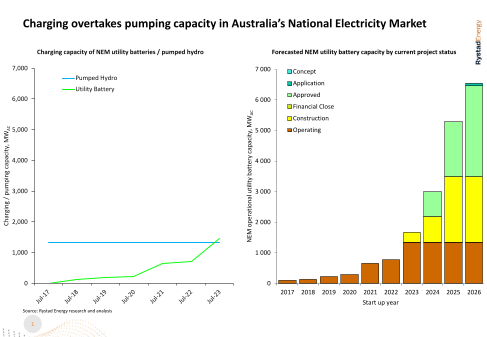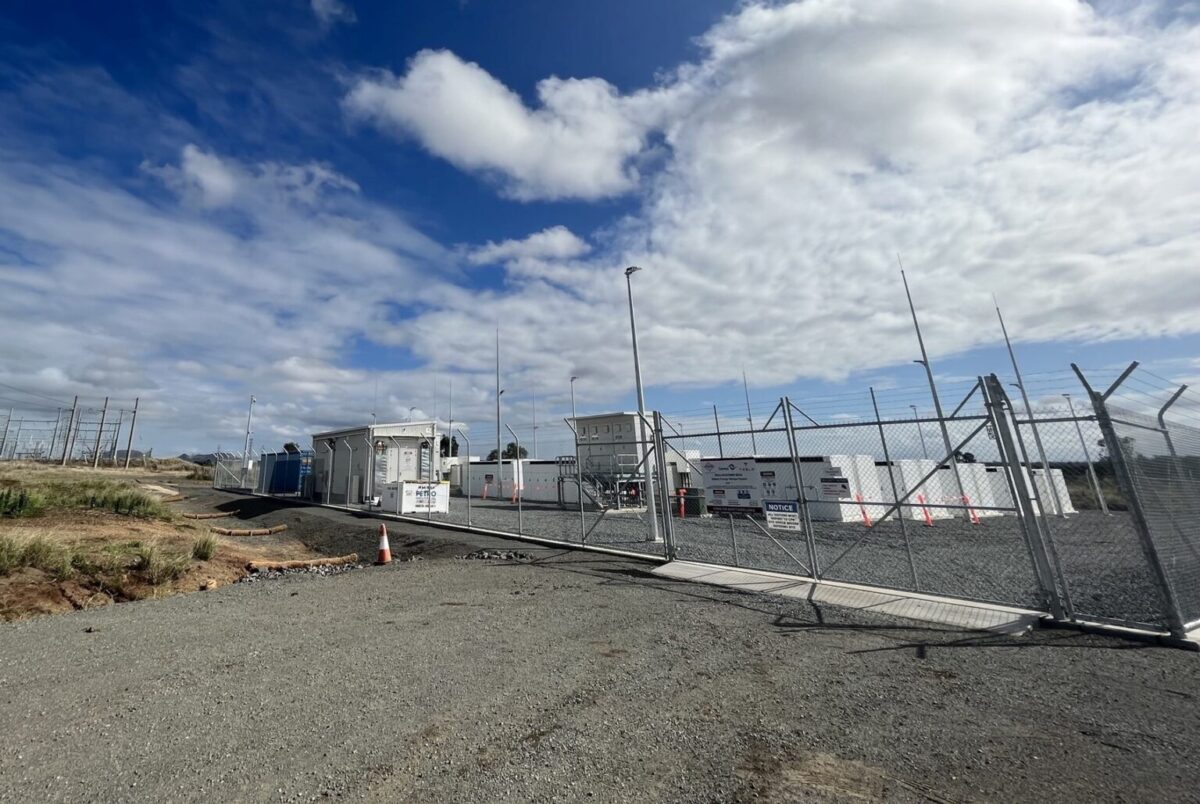Data from Rystad Energy Senior Analyst David Dixon shows the operational charging capacity from utility batteries in the National Electricity Market (NEM) now stands at 1,451 MW, outstripping the 1,340 MW attributed to pumped hydro.
The ascension of grid-scale batteries comes after the energisation of Genex Power’s 50 MW/100 MWh Bouldercombe Big Battery project near Rockhampton in Queensland and French developer Neoen’s 100 MW/200 MWh Capital Battery in the Australian Capital Territory. Both projects are now working through the commissioning stages.
The batteries are the latest in a slew of big battery projects to connect to the NEM in recent months. These include French renewables giant Engie’s 150 MW/150 MWh Hazelwood battery in Victoria, and the 250 MW/250 MWh Torrens Island and 41 MW/412 MWh Tailem Bend batteries in South Australia. Edify Energy’s Riverina Energy Storage System, a project combining three separate battery facilities totalling 150 MW/300 MWh in New South Wales, has also been energized.
Dixon said he expects the gap between battery storage capacity and pumped hydro to increase further over the next few years with “several more utility battery projects expected to enter the market.”
“By 2026 the operational capacity of utility batteries in the NEM will be greater than 6 GW,” he said.
Among those projects set to enter the market are Akaysha Energy’s 850 MW/1,680 MWh Waratah Super Battery project, and the 460 MW/920 WMh first stage of Origin Energy’s planned 700 MW/2,800 MWh Eraring Battery, both in New South Wales.
Neoen is also continuing to grow its energy storage portfolio, having commenced construction of the 200 MW/400 MWh Blyth Battery storage system in South Australia and the 200 MW/400 MWh Western Downs Battery in Queensland.

This content is protected by copyright and may not be reused. If you want to cooperate with us and would like to reuse some of our content, please contact: editors@pv-magazine.com.




1 comment
By submitting this form you agree to pv magazine using your data for the purposes of publishing your comment.
Your personal data will only be disclosed or otherwise transmitted to third parties for the purposes of spam filtering or if this is necessary for technical maintenance of the website. Any other transfer to third parties will not take place unless this is justified on the basis of applicable data protection regulations or if pv magazine is legally obliged to do so.
You may revoke this consent at any time with effect for the future, in which case your personal data will be deleted immediately. Otherwise, your data will be deleted if pv magazine has processed your request or the purpose of data storage is fulfilled.
Further information on data privacy can be found in our Data Protection Policy.